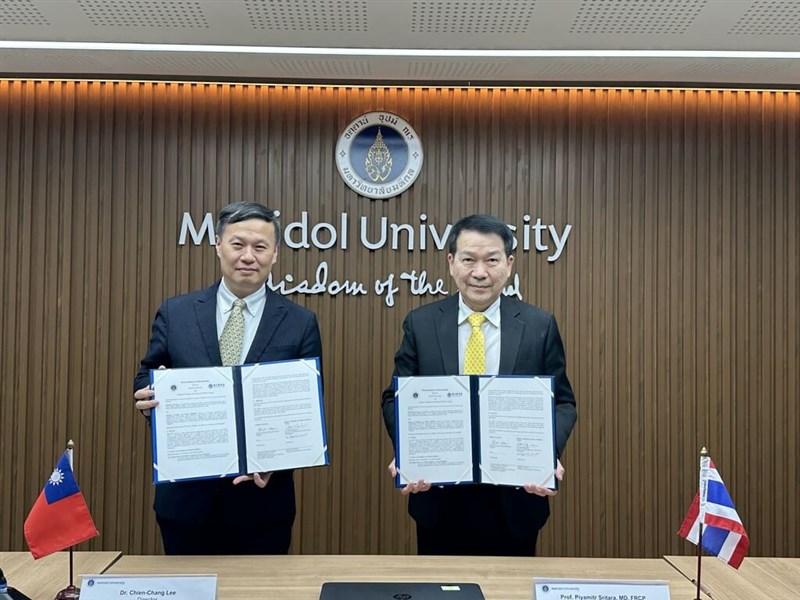
Taipei, Sept. 22 (CNA) Taiwan and Thailand on Monday signed a memorandum of understanding (MOU) to cooperate on validating artificial intelligence (AI) medical models, aiming to accelerate the commercialization of smart healthcare technologies, Taiwan's Ministry of Health and Welfare (MOHW) said.
The MOU, signed by the MOHW's Department of Information Management and Thailand's Mahidol University, marks Taiwan's first external AI validation mechanism and a pioneering global step in medical AI certification.
Under the agreement, Mahidol University will recommend AI medical models for testing at selected Taiwanese hospitals, while Taiwanese hospitals will partner with Mahidol's affiliated hospitals to establish pilot validation sites in Thailand.
AI systems developed in either country can undergo paid testing at both locations, with terms jointly determined, according to the MOU.
The initiative will be supported by the MOHW's federated learning platform, which connects four clinical AI validation centers in Taiwan. By using federated learning, institutions can train models without exchanging raw patient data, reducing privacy risks while improving model reliability and stability, the MOHW said in a statement.
Federated learning is a way to train AI models without anyone having access to an individual's data, offering a way to unlock information and feed new AI applications.
Since 2024, the MOHW has funded four validation centers with databases that meet international standards and established a federated learning platform. These resources give developers and researchers access to larger, population-specific datasets, helping improve the quality and applicability of medical AI systems.
The MOHW said that the partnership addresses key validation challenges and advances Taiwan's goal of becoming a global innovation hub for smart healthcare.
- Cross-Strait
China's 'unification benefits' hold no appeal for Taiwanese: MAC
10/25/2025 10:44 PM - Cross-Strait
Taiwan must rely on strength to secure peace: President Lai
10/25/2025 10:35 PM - Business
Trump wrong to have Taiwan chip on his shoulder: Tech writer
10/25/2025 09:38 PM - Society
Taiwan at least 3 months away from regaining ASF-free status: MOA
10/25/2025 09:23 PM - Business
Sentiment among manufacturers improves for 3rd straight month on AI boom
10/25/2025 08:59 PM